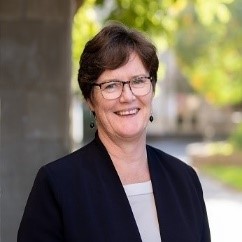
Professor Nigel Clark, co-editor of ‘Environmental Humanities Approaches to Climate Change’, recently commented that ‘bearing witness to the demise or death of what we love is now … an unavoidable part of teaching’*. Scholars increasingly document the emotional labour involved in work on climate change, but there has been limited attention to what this means for university teachers and students. In this inaugural President’s Conversation, Lesley Head will ask a panel of educators at different career stages how they approach their teaching in this context, how they empower students, and how they protect their own and their students’ wellbeing. We hope this conversation will lead to increased sharing of experiences, examples and resources. We also hope the conversation will be of interest to school teachers and those working in disciplines outside the humanities.
*(@InhumanNigel, Twitter, 26 March 2021)

Lesley Head is Redmond Barry Distinguished Professor at the University of Melbourne. Lesley’s research has focused on both prehistoric and contemporary human interactions with the Australian environment, drawing on archaeology, physical geography and cultural geography. From this empirical base she has contributed to international debates about relationships between society and nature. Her latest research has been on the cultural dimensions of environmental issues including climate change. Her most recent book is Hope and Grief in the Anthropocene (Routledge, 2016).

Andrea Gaynor is an Associate Professor of History at the University of Western Australia. An environmental historian, her research seeks to use the contextualising and narrative power of history to assist transitions to more just and sustainable societies. She has held fellowships with the Rachel Carson Center, University of Bristol and The National Library of Australia, and from August 2021 she will be an ARC Future Fellow. Her current research encompasses histories of community-led land management, water in Australian urbanisation and nature in Australian urban modernity. She is convenor of the Australian and New Zealand Environmental History Network and Vice-President of the European Society for Environmental History. With Professor Tony Hughes-d’Aeth she recently established a new minor in Environmental Humanities at UWA.

Blanche Verlie is a Postdoctoral Researcher at the Sydney Environment Institute, at the University of Sydney. Blanche’s research investigates how to better engage and support people in the wide ranging and complex challenges of climate change mitigation and adaptation. More specifically, Blanche explores the affective geographies of eco-anxiety, more-than-human climate ontologies and epistemologies, and feminist climate pedagogies. Blanche’s first book Learning to live-with climate change: From anxiety to transformation will be published by Routledge in June 2021.

Tom Ford lectures in English at La Trobe University and writes on topics and fields that include romanticism, poetics, Australian literature and the environmental humanities. His book on Wordsworth and the Poetics of Air won the British Association for Romantic Studies first book prize for 2017-18. His next book, How to Read a Poem: Seven Steps, is out with Routledge in July 2021.

Paula Satizábal is a Research Fellow at the School of Geography, Earth & Atmospheric Sciences at the University of Melbourne. She is a human geographer, working on environmental governance, geographies of the sea, and social justice. Her research uses a critical political ecology approach to study how regional political economic processes shape environmental governance institutions, power/knowledge dynamics, and how different groups respond to these transformations. She analyses human-environment relations with a focus on small-scale fishing communities in Colombia and Southeast Asia. She is part of the ‘Holding Space Collective’, a group of Early Career Researchers sharing a deep sense of discomfort with exploitative and extractive research practices and the growing precarity within academia, collectively seeking to imagine and hold space for alternative futures in academia and beyond.